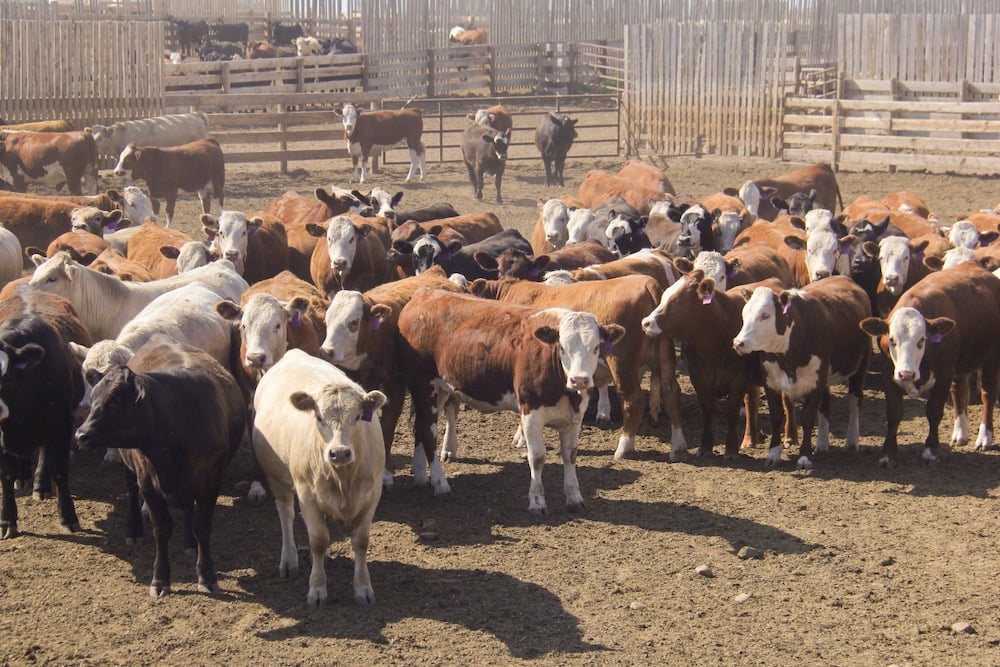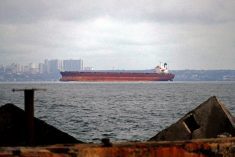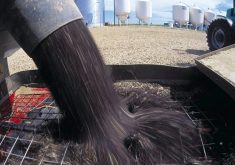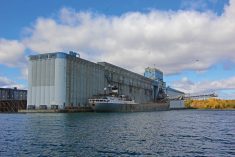Updated, July 19 — Canada’s Industrial Relations Board (CIRB) has ordered British Columbia’s longshoremen back to work until their union serves three days’ notice before restarting strike action.
The International Longshore and Warehouse Union (ILWU Canada) — which represents about 7,400 workers at various Vancouver and Prince Rupert port terminals and facilities — said Tuesday its members had returned to the picket lines late that afternoon, after a caucus of ILWU Canada leadership rejected a federal mediators’ proposal for a four-year agreement.
Read Also

U.S. livestock: Feeder cattle rise to new highs on tight supply, strong cash prices
Chicago | Reuters – Chicago Mercantile Exchange feeder cattle futures rallied on Thursday to a record high on strong cash…
But the CIRB, in a ruling Wednesday morning, said it had since received an application from the B.C. Maritime Employers Association (BCMEA) — which represents port employers in collective bargaining — seeking a declaration of an “unlawful strike.”
The BCMEA had argued 72 hours’ notice should be given before strike action could resume, while ILWU Canada argued “no such notice was required since there was an ongoing strike,” the CIRB said.
The board said Wednesday it considered both sides’ submissions and has now ruled the resumption of strike action to be unlawful. The CIRB has ordered the union to “cease and desist from participating in strike activities” until the relevant terms of the federal Labour Code are met.
Until then, the CIRB said, all striking longshore workers must now “immediately perform the duties of their employment as per the collective agreement and applicable dispatch rules.”
In other words, federal Labour Minister Seamus O’Regan said in a tweet Wednesday morning, “This strike is illegal.”
In response, ILWU Canada said later Wednesday morning it will appeal the CIRB ruling and served the employer group with a fresh 72-hour notice, which would restart the strike on Saturday (July 22).
Hours later, however, ILWU Canada president Rob Ashton published a memo saying the union’s strike notice, which would put the start time on July 22 at 9 a.m. PT, “has now been removed.”
The memo gave no reason for the removal. The BCMEA, in a separate statement later Wednesday, acknowledged the removal, saying “the past 24 hours have demonstrated that this continues to be a fluid and unpredictable situation.”
O’Regan and federal Transport Minister Omar Alghabra, in a separate statement late Tuesday night, said they were now “looking at all options” and “will have more to say on this tomorrow.”
ILWU Canada’s B.C. port members had gone on strike starting July 1, returning to work when the tentative deal was announced last Thursday. The ministers said late Tuesday they’d since been informed by the BCMEA that its employer members “accepted this deal in full.”
However, the ministers said, “we were also informed that, despite initially agreeing to recommend the terms of settlement, the ILWU Canada’s leadership had decided not to recommend ratification of the terms to their members.”
The ministers, in Tuesday’s statement, did not list their remaining options, nor did they use the phrase ‘back-to-work legislation’ — an option which would involve recalling Parliament off its summer break.
But they did say “workers and employers across Canada cannot face further disruption on the scale we saw last week… We have been patient. We have respected the collective bargaining process. But we need our ports operating.”
Service for bulk grain vessels at West Coast ports is exempt from any longshore work stoppage under the federal Labour Code.
Several farmer and ag industry groups have been publicly calling for federal action to end the strike, however, as containerized pulse crops, perishables such as meat and produce, fertilizer and other goods face potential delays.
The BCMEA said Wednesday the strike to date has “caused immense damage to Canada’s trading reputation and disrupted at least $10 billion worth of cargo alone.” — Glacier FarmMedia Network

















